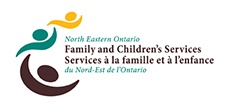
Restorative Justice helps in an inclusive and meaningful way meet the needs of young people who are in conflict with the law. Restorative justice practices provide voluntary opportunities for those who have been harmed and those who have caused harm to take on an active participatory role in their journey for justice, accountability, and reparation.
Youth Justice Committee Membership
Youth Justice Committees (YJC) are set up across the province of Ontario to provide support and direction to youths who have allegedly committed minor offences. YJC’s are professionally trained community members. The YJC’s meet with youths who have allegedly committed certain offences, the parents of the youth and the person harmed in order to negotiate an appropriate way for the young person to make amends for his or her action.
The measures imposed are unique to both the youth and the situation. Regardless of the amendable action any youth involved with the YJC must commit to:
- An apology; and
- Acceptance of responsibility and show remorse
Other measures may include:
- Performing a task for the person harmed;
- Work community service hours;
- Special projects (ie. Essays);
- Make a donation to charity;
- Adhere to a curfew; and/or
- Other measures as deemed appropriate by panel members
Healing through meaningful retribution
The person harmed has an opportunity to actively participate in the process of resolving the incident, through a restorative process.
The young person has an opportunity to prevent having a criminal record and gains an understanding of their behaviour's negative impact on others. Youths are then able to better appreciate the consequences and human cost of their action.
The community benefits as volunteers, who sit on YJC committee, develop skills that empower them to resolve these and future conflicts that may arise in the community.
The Justice System benefits from having an alternative, cost-effective process for dealing with many cases that may not find a positive, meaningful resolution in the courts, which ultimately reduces the cost to taxpayers.
When can a youth be referred?
To be eligible for referral to the Youth Justice Committee, youths must meet specific criteria:
- Be 12 to 17 years of age
- Be prepared to accept responsibility for their actions
- Be made aware of their options and rights
- Be willing to participate
Who can refer youths to the program?
Referrals are made on a case by case basis and can be made by two (2) sources, depending on the situation:
- The Police Service (local or OPP): Police referrals are generally made before charges are laid against the youth
- The Crown Attorney’s office: Crown referrals are generally made after charges have been laid but before formal court proceedings have taken place.
Youths who do not agree with or fail to comply with measures are returned to the referral source for a resolution.
Youth Justice Committee
The Youth Justice Committee is sponsored by North Eastern Ontario Family and Children’s Services (NEOFACS). The volunteers and their coordinators work under the direction of Steering Committees, which include personnel from the Crown Attorney’s Office, local Law Enforcement and Youth Probation Services. The program is funded by the Ministry of the Attorney General.
For more information
To learn more about the Youth Justice Committee or to participate as a YJC Committee Member, please contact the Restorative Justice Worker:
Cochrane Office
705-272-5059
451 Chalmers Avenue, Cochrane
Hearst Office
705-362-4577
1121 Front Street, Hearst
Kapuskasing Office
705-335-2040
29 Kolb Avenue, Kapuskasing
Kirkland Lake Office
705-567-9201
6 Tweedsmuir Road, Kirkland Lake
New Liskeard Office
705-647-1200
25 Paget Street, New Liskeard
Free Legal Advice - Duty Counsel Hotline:
1-800-265-0451
